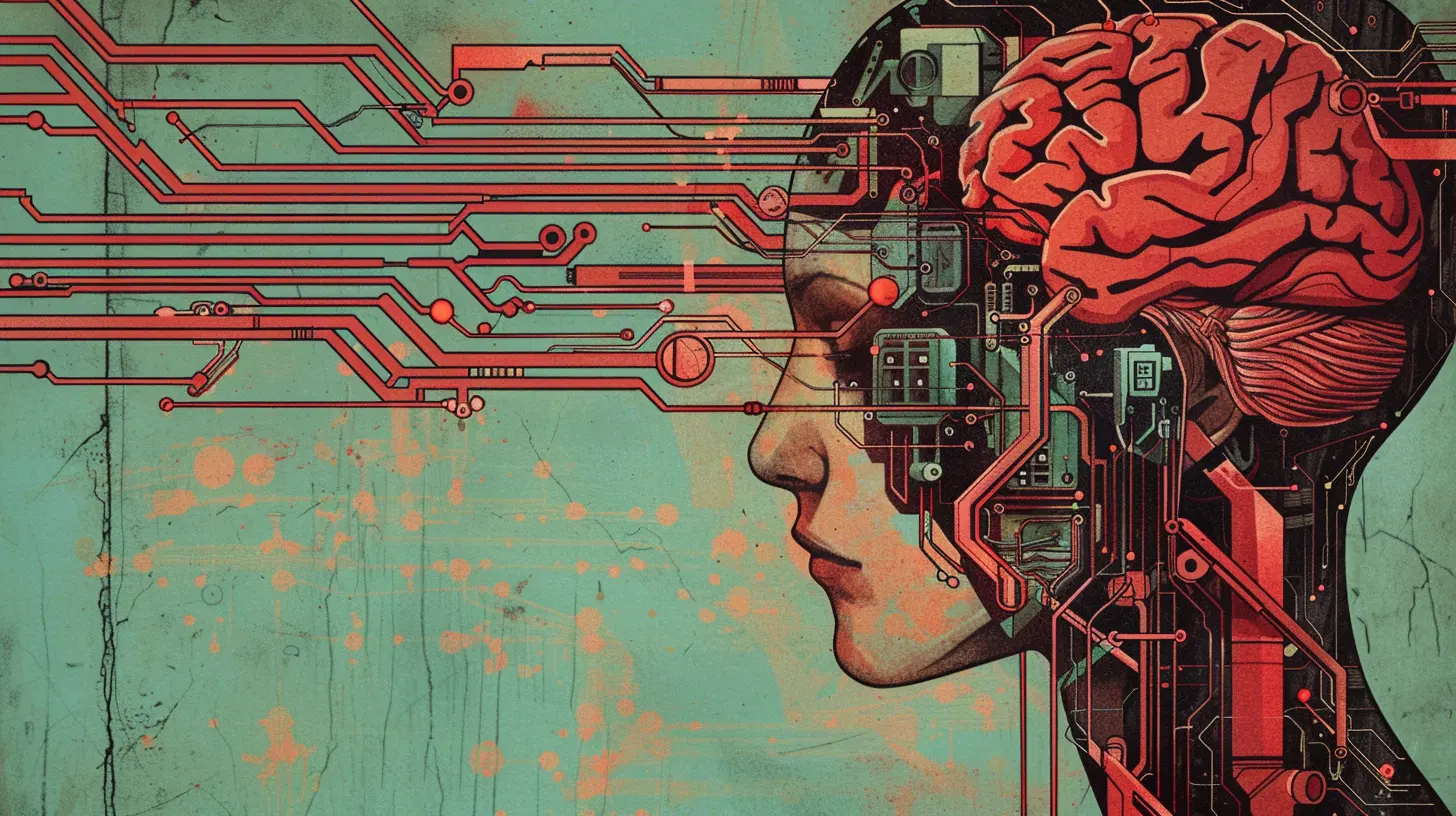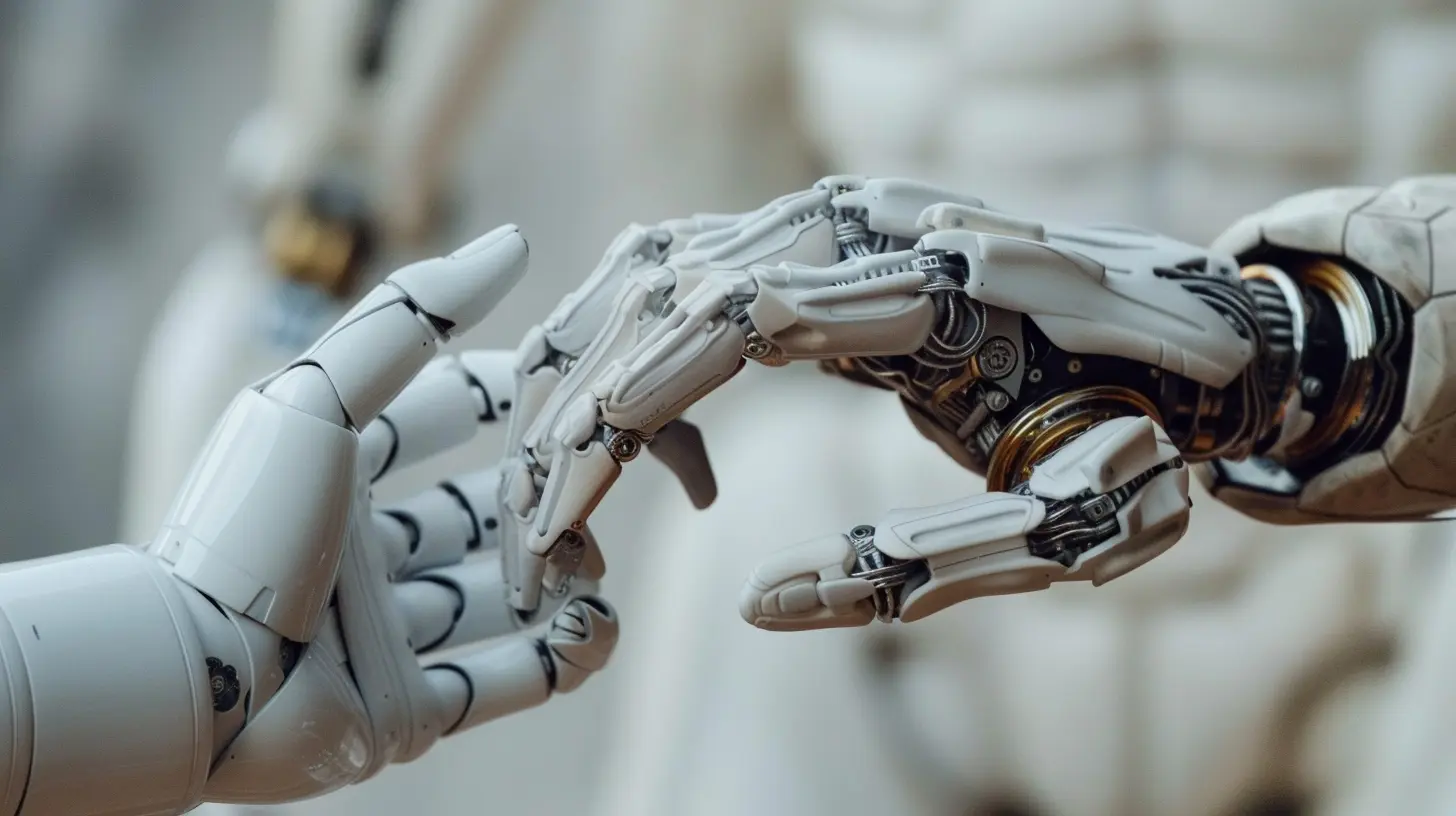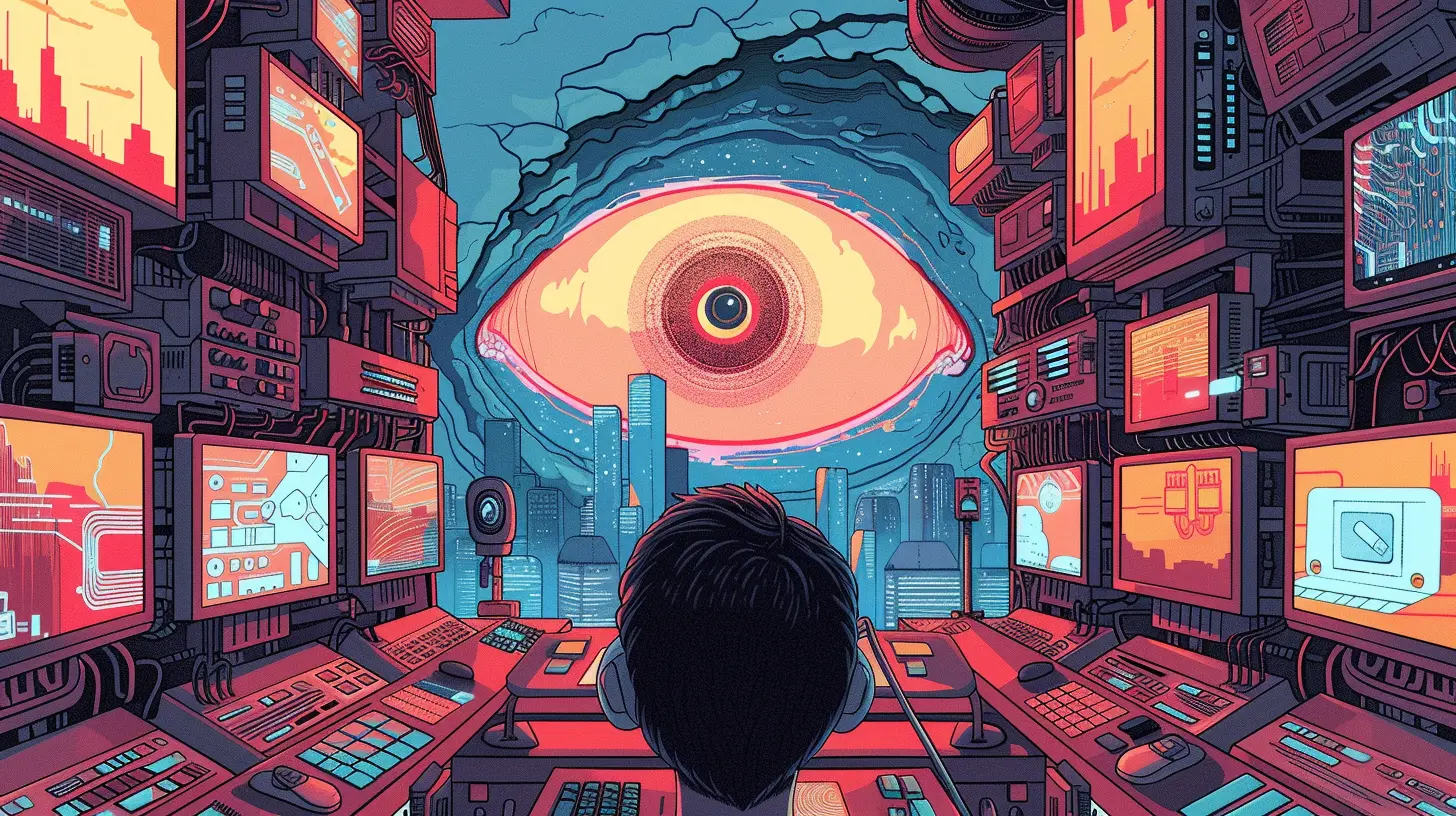How Machine Learning is Enhancing Human-Computer Interaction
30 July 2025
Let’s be real — computers used to be dumb. You typed commands, and maybe—just maybe—they responded how you hoped. There was no intuition, no adaptability, and definitely no “Wow, this machine gets me” moment. But that’s changing, fast.
Thanks to machine learning (ML), the way we interact with technology is evolving from robotic and rigid to fluid and almost human. From your smartphone finishing your sentences (thanks, autocorrect…kind of), to Netflix whispering sweet binge-worthy nothings into your ear, machine learning is making human-computer interaction (HCI) smarter, sassier, and way more intuitive.
So buckle up, tech lover. We’re about to deep-dive into how machine learning is not just enhancing human-computer interaction—it’s reinventing the whole darn experience.
🧠 What Even Is Human-Computer Interaction?
Before we get overly giddy about the “machine learning” part, let’s break down HCI. Human-Computer Interaction is exactly what it sounds like: how humans (that’s us) communicate with computers (that’s, well, everything tech-related).Whether you're tapping an app, yelling at Alexa, or dragging that stubborn file into the trash, you're engaging in HCI. But traditionally, this relationship was based on strict rules, static interfaces, and limited personalization. You had to learn tech’s language—not the other way around.
Enter: Machine Learning.
🤖 Machine Learning: The Brain Upgrade Computers Didn’t Know They Needed
Machine learning is a type of artificial intelligence where computers learn from data instead of being explicitly programmed. Imagine teaching a dog new tricks—but the dog is a superpowered algorithm that improves every time you give it feedback.ML looks at patterns, predicts behavior, and adapts on the fly, like a digital Sherlock Holmes. And when applied to human-computer interaction? That’s when the magic happens.
👀 Personalized Experiences? Yes, Please!
You know when Spotify drops a Discover Weekly playlist and it feels like it read your mind? That’s ML turning HCI into a mood-matching, taste-predicting machine.🎯 How It Works:
Machine learning sifts through your data — clicks, searches, likes, skips — to learn what makes you tick. It then customizes the user interface and experience just for you.- Apps rearrange menus based on habits.
- E-commerce sites show you items you’re more likely to buy (don’t lie, you've impulse-bought).
- News feeds prioritize content that you actually want to see (for better or worse).
The result? Interfaces that feel like they were built around your personal quirks.
🗣️ Voice Assistants: They’re Not Just Robots Anymore
“Hey Siri, play Beyoncé.” Done.“Hey Google, what’s the weather like in Paris?” Boom. Answered.
Welcome to the era of natural language processing (NLP), an ML-powered field that lets computers understand and respond to human language.
💬 What’s Changing?
Language is messy. We use slang, sarcasm, and a bunch of “ums” and “likes.” Machine learning helps voice assistants get better at understanding these nuances over time. So instead of getting frustrated with inaccurate commands, users enjoy smoother, more natural conversations.It’s like we’re teaching computers to speak human.
🧍 Gesture Recognition: Talk With Your Hands? Now Tech Listens
Remember when you had to use a mouse for everything? Ugh, how 2005.ML has made gesture recognition a thing — and it’s glorious. Think touchless interactions, where computers understand your gestures like a futuristic charades partner.
✨ Real-Life Uses:
- Gaming consoles (hi, Xbox Kinect) tracking movement in real time.- Smart TVs that you control with a wave of your hand.
- VR and AR systems that respond to the flick of a wrist or tilt of your head.
It’s giving “Minority Report,” but make it real life.
🧠 Emotion Recognition: Tech That Feels Your Vibe
Yep, you read that right. Machine learning can now detect human emotions based on facial expressions, voice tone, and body language. Spooky or cool? You decide.😳 Why It Matters:
Understanding emotional cues allows machines to adjust responses for better interaction. For instance:- Customer service bots can switch tone if a user is frustrated.
- Apps can suggest mood-appropriate content based on your expression (because nobody wants sad songs on a good hair day).
- E-learning platforms can adapt teaching methods depending on how engaged a student looks.
That's right. Technology is getting... emotionally intelligent.
🧭 Predictive Text & Autocomplete: Keyboard Magic
If you’ve ever wondered how your phone finishes your sentences, you’re looking at ML in action. Predictive models analyze your writing style, commonly used words, and language choice to suggest the next word — sometimes even full emails (shoutout to Gmail’s Smart Compose).Sure, it's not flawless. No one asked for “ducking” in a heated text. But the progress is there.
💡 Bonus: Autocorrect Learns From YOU
The more you use it (even if you cuss a lot), the more it adapts. It becomes your personal mini-editor, helping you express yourself faster, cleaner, and more confidently.🔒 Security That Knows You Better Than You Know Yourself
Remember the hassle of long passwords, security questions, and CAPTCHA tests? Yeah, no thanks.Machine learning is redefining security by making authentication smarter and more seamless.
🔐 Examples:
- Facial recognition that adapts even if you get a new haircut or grow a beard.- Typing pattern recognition (keyboard dynamics = digital fingerprint).
- Biometric authentication that learns your unique walking style or voice pitch.
It’s like having a digital bouncer who knows every version of you—even pre-coffee.
🧑🏫 Smarter Chatbots: Like Customer Service on Steroids
Gone are the days of clunky, scripted bots that made you scream “TALK TO A HUMAN!”ML-powered chatbots are learning to:
- Understand context
- Decode slang and idioms
- Provide customized, real-time answers
- Handle multiple issues at once
They don’t sleep, don’t get cranky, and scale like crazy across different users. That’s customer service that actually serves… finally.
💻 Adaptive Interfaces: It’s Not One-Size-Fits-All Anymore
Machine learning allows interfaces to morph based on the user. This means your age, preferences, accessibility needs, and even energy levels might influence how your device behaves.Your grandparents might get bigger text and simplified menus, while you get all the bells and whistles.
🛠 Use Case Alert:
- Health apps altering dashboards based on daily routines.- Navigation apps adjusting recommended routes based on your driving habits.
- Educational platforms adapting content delivery depending on real-time comprehension.
It’s the ultimate “choose your own adventure” experience but in interface design.
🚀 Augmented & Virtual Reality: Where ML and HCI Shake Hands
ML-powered AR/VR is redefining immersive experiences. We’re not just looking at screens anymore—we’re stepping into them.Think real-time object recognition, personalized 3D environments, and contextual learning based on user behavior.
Whether it’s surgeons training in virtual theaters or gamers riding dragons, ML is making interfaces feel stupidly real.
📊 Data-Driven Feedback Loops: Machines That Learn From YOU
Every click, scroll, and pause is data—and ML gobbles it up like cookies.By constantly absorbing this behavioral data, machines can:
- Streamline workflows
- Eliminate repetitive actions
- Suggest smarter paths
It’s like having a digital assistant that anticipates your needs before you open your mouth.
🚧 Challenges? Yep, Can’t Ignore Them
Let’s get real for a sec. It’s not all sunshine and unicorns. There are legit concerns around:- Privacy (who sees your data?)
- Bias in models (because machines are trained by humans… yikes)
- Over-dependence on algorithms (are we thinking for ourselves anymore?)
But with transparent practices, ethical AI development, and more diverse data sets, we can build a future where machine learning enhances—not replaces—human interaction.
🥂 Final Thoughts: We’re In A Whole New (Tech) World
Machine learning isn’t just enhancing human-computer interaction. It’s flipping the script. It’s no longer about learning how to use tech—it’s about tech learning how to work with you.From personalized interfaces and voice assistants to emotion-aware systems and AI-powered customer support, the entire landscape of HCI is more dynamic, inclusive, and downright magical than ever before.
So go ahead, talk to your devices, wave at your TV, ask your chatbot about your delivery, and marvel at how your phone knows you better than your ex ever did. The future isn't coming — it's already here, and it's machine learning its way into your life.
all images in this post were generated using AI tools
Category:
Machine LearningAuthor:

Ugo Coleman
Discussion
rate this article
1 comments
Zephyrian Fry
Great article! It's exciting to see how machine learning is revolutionizing human-computer interaction. The potential for more intuitive and personalized experiences is immense. I believe these advancements will not only enhance usability but also foster deeper connections between users and technology. Keep up the fantastic work!
August 1, 2025 at 4:30 AM

Ugo Coleman
Thank you for your kind words! I completely agree—machine learning is truly transforming how we connect with technology. I'm glad you enjoyed the article!


